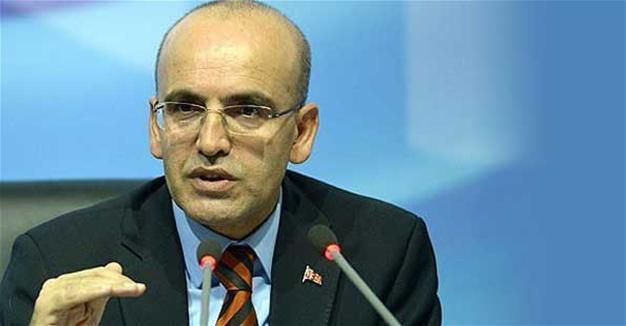New regulations to tighten control of exchange offices
ISTANBUL

The government is working on regulations to tighten control over foreign exchange offices, Deputy Prime Minister Mehmet Şimşek has said.
“With the regulations, we will more effectively inspect foreign exchange offices, improve their transparency, financial infrastructure and credibility,” Şimşek told Anadolu Agency.
“And market data will be monitored more closely with private information systems,” he added.
“Evaluations conducted by the Treasury have revealed that transactions by foreign exchange offices cannot be effectively monitored in the existing system and that there is no statistical data about these transactions,” Şimşek said, adding that the current regulations failed to adequately meet market demands for the use of new currency-trading tools.
“There is a need to transform foreign exchange branches [so that they acquire] a more institutional structure and separate them according to the size of their capital and operating subjects,” the deputy prime minister said.
“According to this, we will have two groups of exchange offices: Group A and Group B. Foreign exchange bureaus in Group A, as well as transactions that can be carried out by offices in Group B, may also act as an agent of electronic currency institutions and payment institutions through foreign exchange transactions via bank transfer,” he said.
“In addition, they will be able do transactions via ATMs, internet and debit cards. Thus, the use of financial technologies will also be widespread,” Şimşek said.
Şimşek said the capital structures of all authorized institutions would be strengthened and that their fields of activity would be expanded as the responsibilities of foreign exchange offices are increased.
In this context, Şimşek said capital obligations would be increased for the two types foreign exchange offices in different amounts. “Companies will be transformed into a more institutional structure in terms of new transactions that can be done by Group A. This means that the companies will have new obligations, such as the obligation to sign a framework agreement. Alternatively, a one-time purchase contract will be brought in and the details of how transfer orders will be issued will be detailed.”
Şimşek emphasized that foreign exchange branches will be more effectively controlled through the mentioned changes and that their transparency, financial infrastructure and credibility will be increased.
Şimşek said market data would be monitored more closely with private information systems. “We will also complete the legislative efforts to take deterrent measures for unauthorized enterprises to ensure an effective and fair competition environment,” the deputy prime minister added.
 The government is working on regulations to tighten control over foreign exchange offices, Deputy Prime Minister Mehmet Şimşek has said.
The government is working on regulations to tighten control over foreign exchange offices, Deputy Prime Minister Mehmet Şimşek has said.